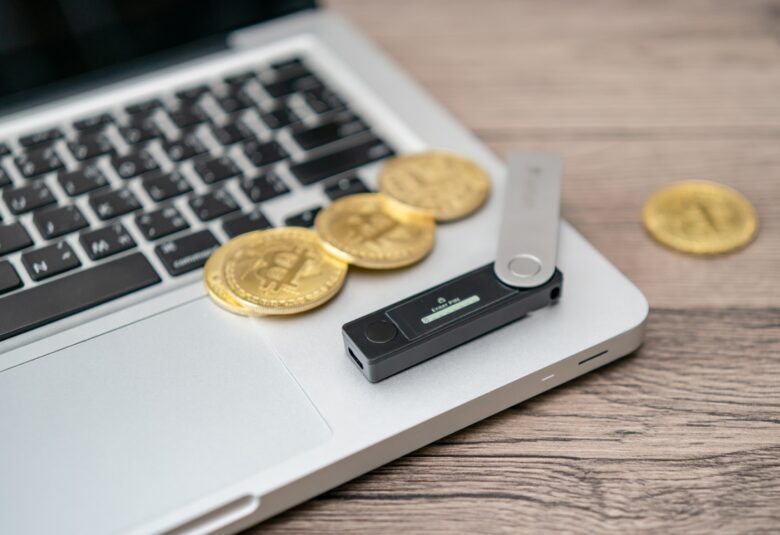In this day and age, digital technology has become a vital part of civilization. This era has seen the rise of cutting-edge technologies like artificial intelligence, internet of things, renewable energy, and a host of others.
These technologies have transformed all aspects of life, from day-to-day living to industrial exploits, and beyond. And as the transformation intensifies, it won’t be far-fetched for the world to become fully dependent on digital technology.
However, as we continue to rely more on technology, data security becomes increasingly necessary. In order to prevent the misuse of these technologies, certain measures must be put in place.
There are many security systems available in the world today, but only one is currently taking the world by storm – and it’s blockchain technology.
This article will explore the fundamentals of blockchain, its application in data security, and more.
Contents
Understanding Blockchain Technology

Source: connects.world
At its core, blockchain is a technology that deals with the storage, verification, and security of data.
It can be likened to a journal or a ledger that is used to record and keep track of data. But blockchain is different in that data is not stored in any one book or register, but digitally, on many computers around the globe. This speaks to its decentralized nature.
What’s more is that these informations are governed by each and every one of the computers through a peer-to-peer system. This means that before any new data is added, verified, or modified, all the computers must be in agreement. This system demonstrates blockchain’s immutability.
These are great features, but there’s something else that puts blockchain at the top of the data security food chain – cryptography. Every recorded data comes with a cryptographic hash of the previous information , and this creates a system where each data contains information about the last. This makes it so that no data can be modified without first altering all preceding ones.
Blockchain technology combines all of the above features in order to create tamper-proof data records. It has been doing this since it was first launched in 2009, and it seems like it’s not stopping any time soon.
Use Cases of Blockchain: Improving Trust and Privacy
Blockchain has real-life applications that include:
- Online gaming
- Supply chain
- Smart contracts
- Identity verification
In these use cases, blockchain demonstrates its ability to enhance trust and privacy.
Online Gaming

Source: casino.betmgm.com
Blockchain has added some level of trust to the online gambling industry, and it does so in two important ways.
First off, it helps ensure that the games on online casinos are fair and square. How? Since gaming data is stored on a decentralized and tamper-proof ledger, players will be able to independently check the data and ensure the results aren’t manipulated.
Moreover, the integration of blockchain has allowed online casinos to not only deliver fast payouts to its consumers, but also make it quick and easy for them to make deposits.
That being said, some online casinos may never need to integrate blockchain into their deposit system. This is because like the verde casino no deposit bonus, they ordinarily give players free spins and bonuses. With these perks, gambling enthusiasts can bet on their favorite games without having to deposit any money.
Supply Chain
Blockchain technology is also enhancing transparency and security in supply chain management. In achieving this, the movement of goods is recorded on the blockchain – from their source to the final consumer.
This allows stakeholders to not only trace the journey of products, but also verify their authenticity and quality. What’s more is that the records are immutable, and as such, no data in the supply chain can be tampered with.
Smart Contracts

Source: zipmex.com
Smart contracts are self-executing contracts. In these contracts, the terms of an agreement are encoded directly on the blockchain. Once encoded, the contract is then automated, so that it is executed once those terms have been fulfilled.
In a smart contract, the only time a transaction will occur is when predefined terms have been met. This eliminates the risk of fraud and ensures that agreements are carried out precisely as intended.
General Role of Blockchain in Data Security
Blockchain’s role in the realm of data security cannot be overemphasized.
By virtue of its decentralized structure, immutable nature, and cryptographic system, this ledger technology has been able to maximize data security in various facets of the world today. In fact, because of its security, over 50% of companies have made blockchain a vital part of their business.
But how exactly does blockchain accomplish this? Find out below.
Reduction of Vulnerabilities

Source: Jasmin.com
Blockchain’s decentralized structure serves as a formidable defense against data breach and cyberattacks.
In blockchain technology, data (block) is stored and managed on many different computers (nodes) around the world. So, even if one or several of these computers are compromised, the network will still be secure.
Trust Building
It’s not uncommon for people to tamper with data to suit their needs. This is a problem that blockchain’s immutability provides a remedy to.
Since no data can be recorded or altered without the consensus of all nodes, it becomes harder for its accuracy to be skewed in one’s favor. This improves people’s trust in data, and allows them to utilize it with peace of mind.
Protection of Data Integrity

Source: canva.com
By utilizing two offshoots of cryptography, blockchain is able to protect data integrity and privacy in more ways than one.
Cryptographic hashes make it so that recorded data cannot be modified without first altering those preceding it. In addition, the use of public and private keys allows blockchain to limit access to stored data.
With these perks, blockchain is able to prevent unauthorized access, whilst also reducing the rate at which data is altered.
